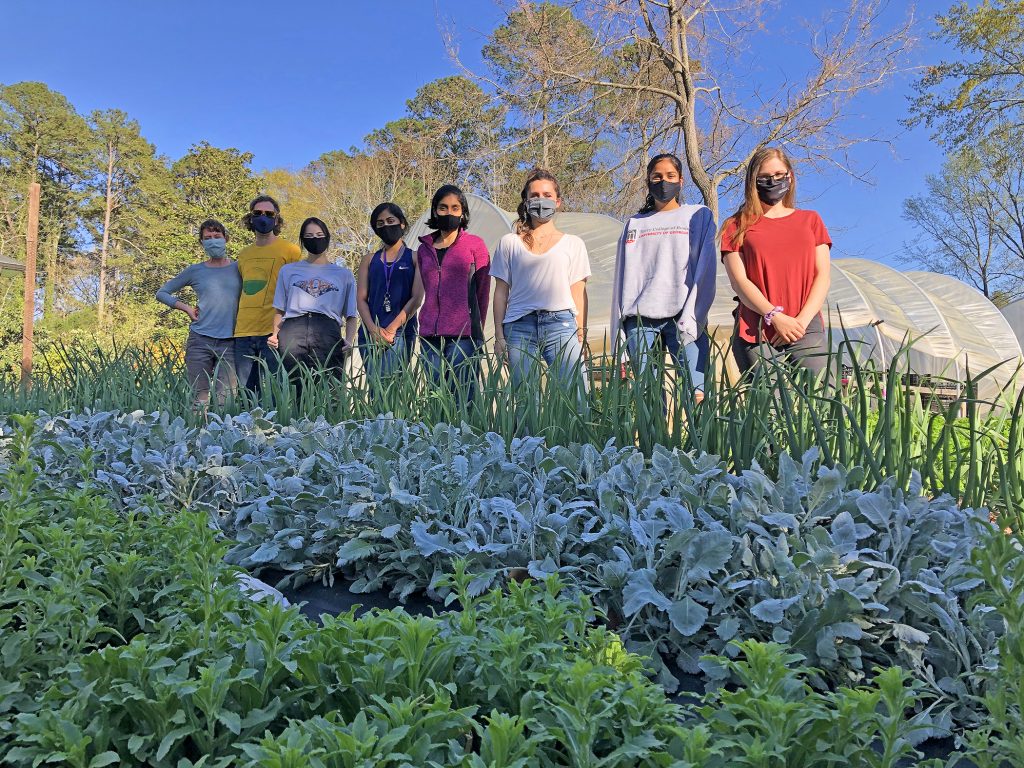Triple Impact Consulting sparked by student interest in sustainability careers
It’s not easy being green. Businesses often need outside help to make their operations more environmentally sustainable.
That’s where Triple Impact Consulting comes in. The student-run consulting group from the University of Georgia works with local businesses to help tackle sustainability projects that business owners don’t have the capacity to complete.
“We’re going to tackle a project that you’ve always wanted to do, but you haven’t had the time or resources to do it,” said Nate Shear, a third-year finance major who helped launched the consulting group with other UGA students. “We can help you get that project done.”
With a roster of 40 student volunteers, the group has taken on eight local projects this spring, ranging from an urban farm to a regional architectural firm.
“It’s been exciting to watch it grow from the idea that we had last summer into students now working on actual projects and telling us that they’re enjoying it,” said Anjali Sindhuvalli, a third-year accounting major who co-founded Triple Impact with Shear and third-year management major Andrew Schoppenhorst. She now serves as the group’s president.
Their idea quickly grew
All three are students in the Terry College of Business who interned with the UGA Office of Sustainability and wanted to use the skills they were learning to help businesses become more sustainable. What they didn’t know when they floated the idea to their classmates was how many other students felt the same way. The group drew students from across the university to help meet the various needs of their clients.
In the last year, they’ve formed a formal student organization and a nine-person board, secured an operating grant from the UGA Office of Sustainability and recruited their first class of clients.
“Our clients range from firms that need marketing help to firms who are working on their B Corp certification paperwork,” Sindhuvalli said. “It is a diverse group of firms.”
Globally, sustainability and environmental consulting is becoming a major part of the consulting business, with top firms including Deloitte, McKinsey & Company and others expanding their sustainability consulting branches. But those consulting services aren’t within reach of small businesses or startups, Sindhuvalli said.
Hands-on work with businesses
Rita O’Brien, co-owner of R&R Secret Farm in Athens, grows and distributes thousands of stems of Certified Naturally Grown flowers across the country.
Her 4-year-old business took off during the pandemic, and she is busy growing flowers and shipping orders. She turned to Triple Impact to find a product to replace the plastic bouquet wrap she currently uses for shipping and to help develop a social media marketing plan.
New business owners are often stretched too thin to tackle the non-essential projects that can help move the company forward, said Nathan Stuck, director of corporate culture at Alpharetta-based Ad Victoriam Solutions and alumni advisor to Triple Impact Consulting.
“The opportunity that a club like this offers students is a way to explore what this type of consulting looks like,” Stuck said. “With Generation Z especially, they want to know that the company they’re working for is doing good. Seventy-three percent of them think businesses should be a positive force for solving societal issues. There is a market for things that both make money and serve a greater good.”
Sindhuvalli, Shear and Schoppenhorst are hoping Triple Impact will help more business-minded students explore careers in sustainability. There are opportunities out there and a lot of work to be done, Shear said.
“There are economic incentives for companies to make sustainable decisions,” Shear said. “Having people who can highlight the benefits of those kinds of changes from a financial angle and figuring out how to make them cost-effective or profitable is what makes them sustainable on the business side.”
